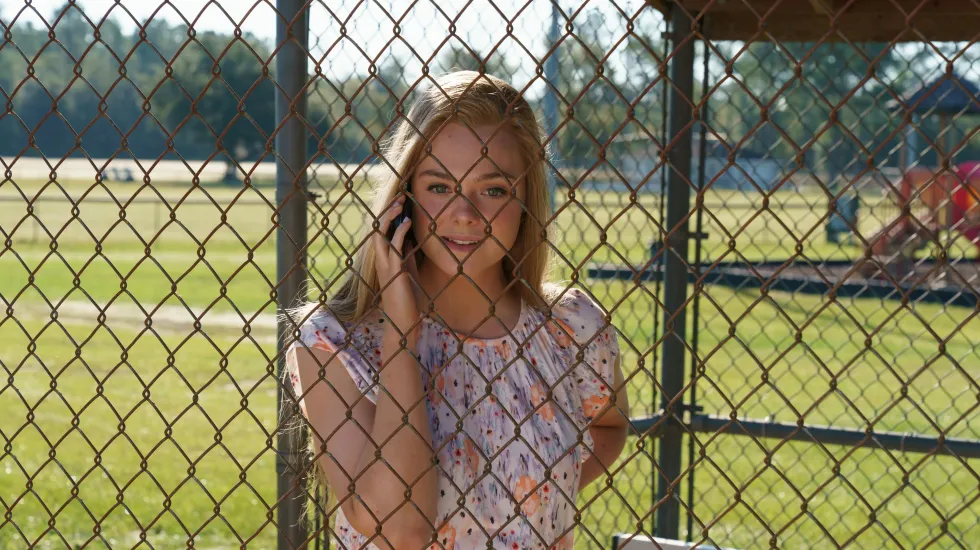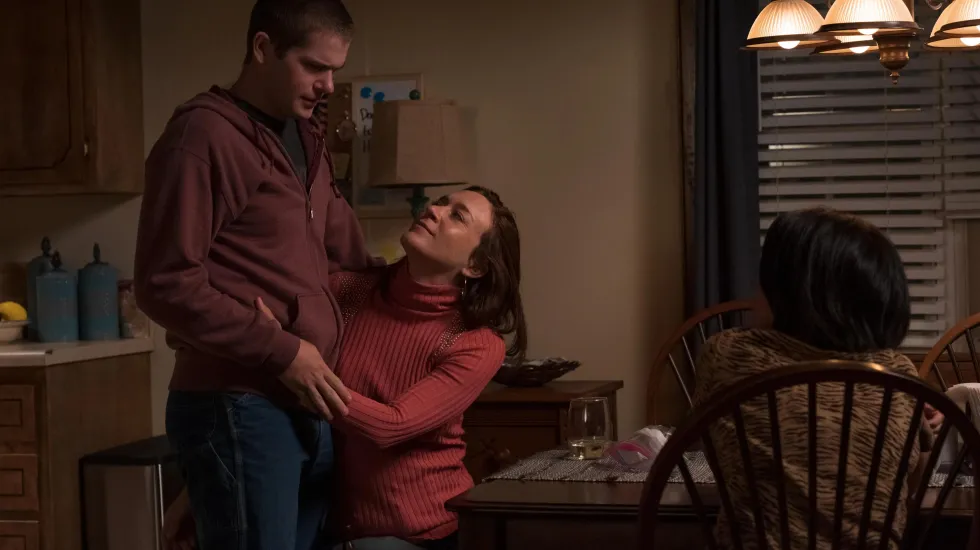
For those who have been involved in a high-profile, newsmaking, scandalous and highly unusual criminal case in the 2000s or 2010s, it’s only a matter of time before one of the major streaming platforms orders up a limited series inspired by that story, with disclaimers stating, “While this program is based on real events, certain parts have been fictionalized solely for dramatic purposes and are not intended to reflect on any actual person or entity.”
That’s the title card we see before every episode of the well-made, deliberately paced and decidedly unsensational Hulu series “The Girl From Plainville,” which is based on the odd and disturbing and ultimately tragic relationship of 17-year-old Michelle Carter and 18-year-old Conrad Roy, who saw each other in person only a handful of times but shared thousands of texts, emails and phone calls — with Conrad expressing an increasingly pressing desire to end his life and Michelle urging him to do so, even telling him to get back in his truck as it filled with lethal carbon monoxide. (The series is based on journalist Jesse Barron’s stellar reporting in Esquire magazine.)
After Roy’s death and the discovery of the exchanges between the two, Michelle was indicted and convicted on charges of involuntary manslaughter, serving more than 11 months before her release in 2020.
A limited series premiering with three episodes Tuesday on Hulu. Another episode will premiere each Tuesday through May 3.
Lurid, heartbreaking, purely 21st-century stuff. In the wrong hands, “The Girl From Plainville” could have felt exploitative, but showrunners Liz Hannah and Patrick Macmanus serve up a nuanced, balanced and creatively intriguing approach to the material. We’re outraged by Michelle’s lies and manipulations, but as portrayed by Elle Fanning in a finely calibrated performance, Michelle also comes across as a sad, lonely and troubled young woman who was under some sort of delusional belief she was actually helping Conrad by encouraging him to end his suffering and leave this world for a better place.
In the premiere episode, Fanning’s Michelle, tears welling in and in a daze, comes downstairs in her family’s upper-middle-class home in the suburban Massachusetts town of Plainville as her parents (Cara Buono and Kai Lennox) are having breakfast and says, “Conrad is dead.”
Her mother replies, “Who’s Conrad?” The young man’s death is literally the first time Michelle’s family is made aware of his existence.
At the same time, Conrad’s mother Lynn (Chloe Sevigny in one of her strongest performances), who is divorced and lives with her children in a rental home in a working-class town about an hour’s drive away from Plainville, is reeling from grief when she finds a handwritten note from her son to Michelle — and this is the first she’s heard of Michelle. These are the first signs there was something … strange about this relationship. Toggling back and forth between the immediate aftermath of Conrad’s suicide in 2014 and the first time Conrad and Michelle met while their families were on vacation in Florida in 2012, “The Girl From Plainville” chronicles the passionate but almost strictly tech-based relationship between the two.

Rather than overload us with text after text, phone call after phone call, the series re-creates their exchanges as if they’re together in person, allowing Fanning and Colton Ryan as Conrad to take us inside their relationship, which at first seems sweet and innocent but becomes increasingly toxic. Conrad suffers from crippling anxiety and always seems to be on the edge of a breakdown, while Michelle is lost in a “Romeo and Juliet” type of fantasy — soaking up teen romance material such as “The Fault in Our Stars” and episodes of “Glee,” embracing REO Speedwagon’s “Can’t Fight This Feeling” as their song.
Eventually, the story becomes as much of a courtroom procedural as a character study, with Kelly AuCoin (“Billions”) and Aya Cash (“The Boys”) doing outstanding work as the police detective who initially raised the possibility of criminal charges and the assistant D.A. who tried the case, respectively. By the time Michelle is put on trial, she seems even more disconnected from reality and still incapable or unwilling to acknowledge any culpability in Conrad’s death. We’re outraged at her behavior, but we feel deeply sorry for her as well.







